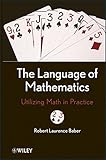You can be a hacker and get by with very little math, depends what you are hacking. Hacking is not a profession, it is more of an approach to things, a way of looking at the world, the joy of really figuring stuff out and maybe doing something cool, something that might have seemed impossible. This does usually involve mastery, but not necessarily of mathematics.
I think the question you should be asking, or maybe are even asking is - how much mathematics do I need to hack the hack that I want to hack? - and the first thing you need to do, if you have not already done so is try to think about what that might be. Even a vague idea will give you plenty of clues about how much of what you might need for that.
If you find it troublesome, check out what Richard Hamming has to say about it, it should help you out a lot with figuring it out [1][2].
That said, if you want to do computer science, or hack on the interesting things you do need quite a bit of mathematics. This is due to the fact that, as other posters here have pointed out, what you are really in need of, is an effective way of problem solving, and to solve a problem you need to understand it, model it, work on it in some terms. Mathematics is /the/ method of clear thinking which you should apply in order to do this. Sure, you can do certain things without mathematics, but you are not making things any easier for yourself by doing that, and more importantly you are not gaining as much insight as you would have if you used the mathematical approach.
Now, you do mention that you are not good at mathematics, do not let that discourage you, there are many people who were, or are in similar situation as you, me included, and I can assure you that with some dedication and open minded thinking, it comes easier than you might think, and all this effort almost instantly pays off. If you are familiar with one or several programming languages, check out these amazing books and use them alongside whatever mathematics course you will be taking, they will help you out immensely by helping you master both the problem solving approach and the necessary concepts in order to succeed in mathematical education [3][4][5].
[1] https://www.youtube.com/playlist?list=PL2FF649D0C4407B30 [2] http://worrydream.com/refs/Hamming-TheArtOfDoingScienceAndEn... [3] http://www.amazon.com/Language-Mathematics-Utilizing-Math-Pr... [4] http://www.amazon.com/How-Solve-Mathematical-Princeton-Scien... [5] http://www.amazon.com/How-Prove-Structured-Approach-2nd/dp/0... [6] http://www.amazon.com/Methods-Mathematics-Calculus-Probabili...
Recently, after watching R.W. Hamming lectures and reading his book "Art of Doing Science and Engineering" [1] [2] decided that I would try learning mathematics again.
I found it really hard to do. There are so many implicit assumptions, so much ground that is not covered. I was about to give up again, when I found a book [3] by retired computer science professor, who seemed to have written it specifically for me! it really felt that way.
Now I recommend it to almost everyone, especially tech-savvy people. I am no longer afraid of mathematics, with the help of this book, and great advice by Hamming, I am finally "getting it". If you find learning new programming languages easy, but struggle with mathematics, check it out!
The book is not aimed at teaching you mathematics, rather, it teaches you those missing pieces, that almost every other book either assumes you already know, or describes vaguely and badly, gives you context and valuable advice. To me it almost feels like it is teaching you a functional programming language. A strange and very flexible programming language, with its warts and all. You learn the language, and then you can go on to explore programs written in it, algorithms, data structures whatnot.
My ultimate goal is to, at least, learn enough so that I can really understand books by Hamming, especially "Methods of Mathematics Applied to Calculus, Probability, and Statistics" [4]. And, of course, to do interesting projects along the way, now that I am starting to understand some of the research papers.
[1] http://worrydream.com/refs/Hamming-TheArtOfDoingScienceAndEn...
[2] https://www.youtube.com/watch?v=AD4b-52jtos&list=PL2FF649D0C...
[3] http://www.amazon.com/The-Language-Mathematics-Utilizing-Pra...
[4] http://www.amazon.com/Methods-Mathematics-Calculus-Probabili...


* How to Solve it by Polya https://www.amazon.com/How-Solve-Mathematical-Princeton-Scie... and How to Prove it by Velleman https://www.amazon.com/How-Prove-Structured-Approach-2nd/dp/... helped strengthen that understanding.
* This year I am trying to master https://www.amazon.com/Methods-Mathematics-Calculus-Probabil... which focuses on how to "connect the dots".
* I am using Geometry and the Imagination by Hilbert https://www.amazon.com/Geometry-Imagination-AMS-Chelsea-Publ... as an attempt to "immerse" myself in Geometry. I just love this book.